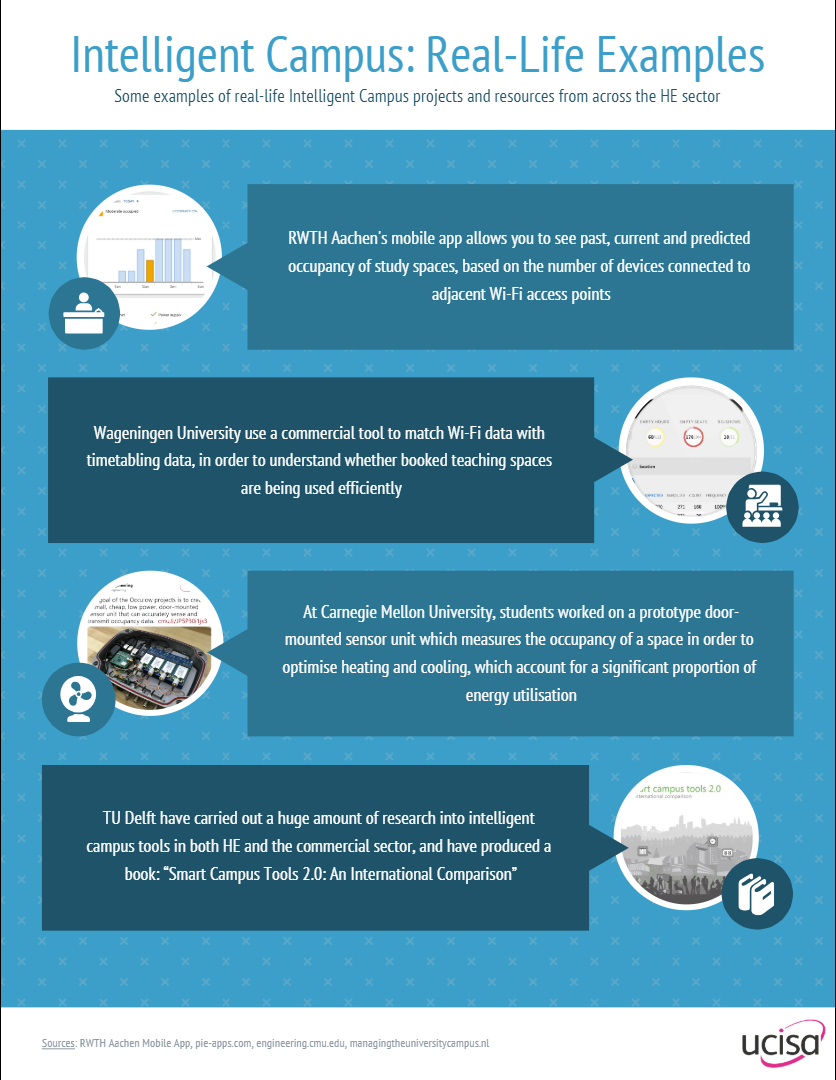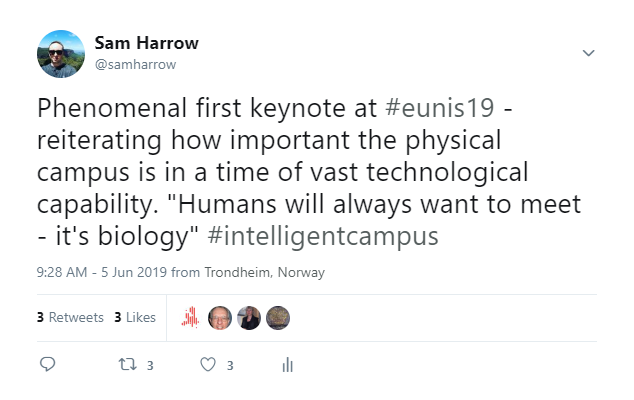This is one of a series of articles written after the EUNIS 2019 conference, which I attended through the ucisa Bursary Scheme.
Through my work as IT Business Partner for Estates, I’ve been involved in a number of discussions about the growing importance of data – for making decisions about the future of campus, for improving the experience of our students and staff, and for optimising the performance of our rooms and buildings. This all links to the “Intelligent Campus” initiative, referred to as Intelligent Estate here at Birmingham.
The theme for this year’s EUNIS congress was “Campus for the Future”, and a number of the talks and presentations were directly linked to these initiatives. It’s clear that there are pockets of exciting innovation and progress across Europe which we can learn from and build upon over the coming years. Some examples can be seen in the infographic below:

One of my personal highlights of conference was the keynote lecture from Professor Alexandra den Heijer of TU Delft, which discussed a vision of the campus of the future, challenges faced by campus managers, and the possible role of smart tools, big data and management information (a recording of this lecture is available: https://youtu.be/xO7zoF5khbk?t=2040). Several papers have been published by TU Delft (referenced in the diagram above), which can be found here: https://managingtheuniversitycampus.nl

It was interesting to hear that in the 2000s, it was expected that universities would start to replace “bricks” with “clicks” (i.e. online learning), but more than ten years on the reverse is becoming true – more and more focus is being placed on the importance of physical campuses and learning spaces. With the growing need to carry out group work and collaborate on projects, central space for study will always be required, and there are a growing number of “push” factors causing students to increasingly prefer studying on-site. Netflix and social media are two prime examples of the distractions which students come to campus to escape from. The challenge this creates is similar to sunbeds by a pool; there is usually enough space for everyone, but users are often keen to reserve their ideal space early and then make very little use of it (or sometimes not use of it at all!).
The campus of the future from TU Delft’s perspective is blended – providing physical space for learning, teaching and working, but with enabling technology to allow new ways of interacting and sufficient information for management purposes. Early conversations about this are continuing in the UK, both through Jisc’s Intelligent Campus community and at individual institutions including Birmingham, where we’ve previously blogged about Intelligent Campus / Intelligent Estate (https://blog.bham.ac.uk/itnews/2019/04/08/the-intelligent-estate-initiative).
Watch this space!
